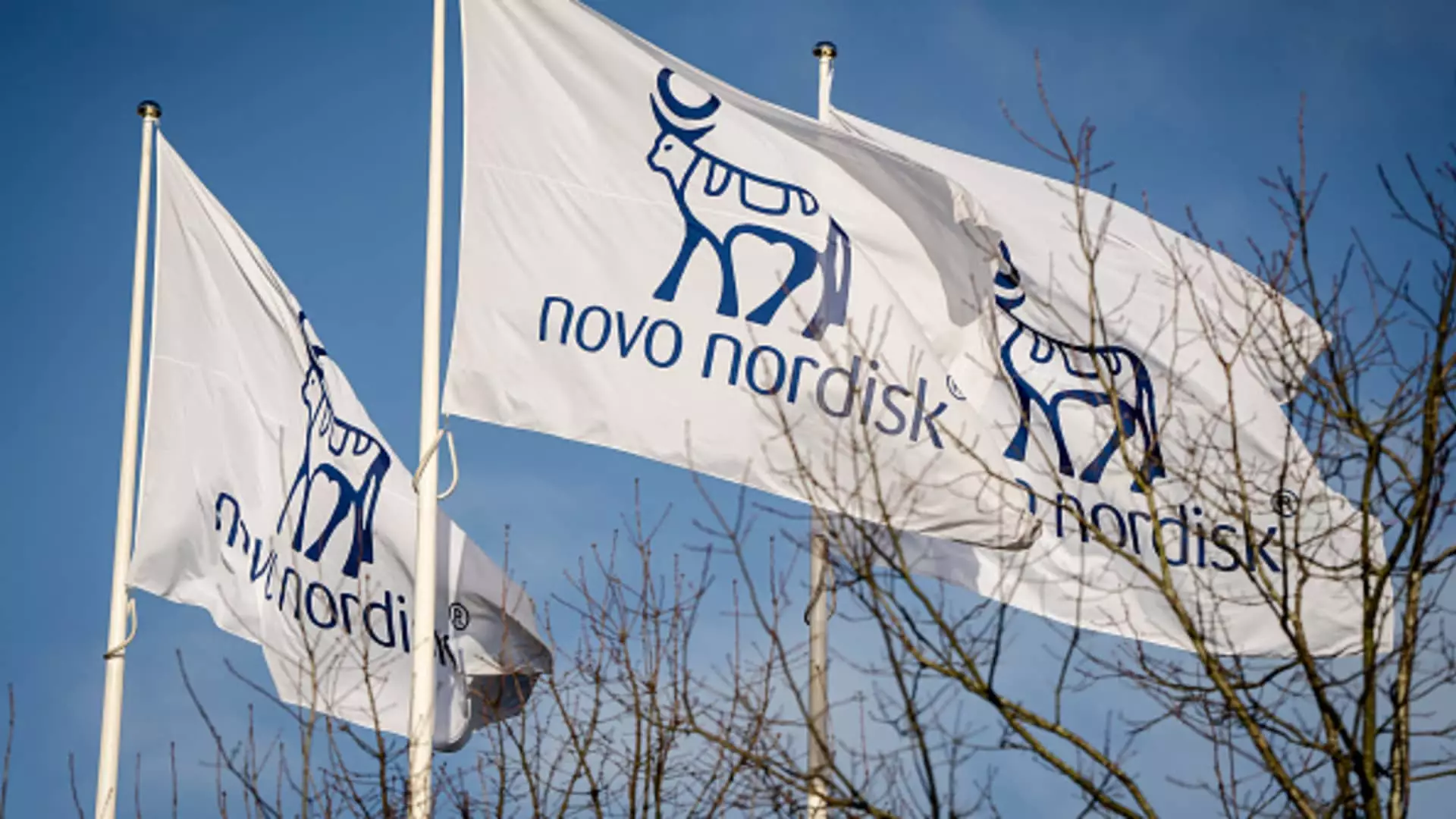Novo Nordisk’s recent announcement about its diabetes pill, Rybelsus, is not just a footnote in the ongoing battle against diabetes; it could be a game changer. In a late-stage trial, Rybelsus demonstrated a remarkable 14% reduction in cardiovascular-related death, heart attacks, and strokes compared to a placebo over an average of four years. This statistic isn’t merely a numerical benchmark—it represents a pivotal point in diabetes management, particularly for individuals struggling with both diabetes and heart disease.
This data was unveiled at the American College of Cardiology’s Annual Scientific Session in Chicago, generating considerable excitement among medical professionals and patients alike. For the first time, a pill that effectively combines the management of diabetes with heart health is within reach. This is crucial, given that cardiovascular diseases are often the silent companion of diabetes. The connection between the two has long been established, and the integration of their treatment is long overdue.
The Need for Oral Alternatives in Diabetes Treatment
The traditional landscape of diabetes treatment has been obstructed by the inherent reluctance many patients have towards injections. For countless individuals, the fear of needles can be a significant barrier to proper treatment. Luckily, Rybelsus, as an oral medication, offers an advantageous alternative. “Not everybody wants an injection… they want the option of an oral medication,” said Stephen Gough, Novo Nordisk’s global chief medical officer. This sentiment encapsulates the core of patient-centered healthcare—empowering patients with choices and catering to their specific needs.
Imagine a world where patients feel more at ease in their daily routines, simply because they can take their medication in the form of a pill rather than dealing with the anxiety of needles. This not only promises to increase adherence to treatment but could also significantly improve overall health outcomes, as more individuals seek treatment without the dread of injections.
The Clinical Landscape and Broader Implications
Novo Nordisk is not alone in this pursuit. Other pharmaceutical giants like Eli Lilly are also developing oral GLP-1 medications for diabetes and weight loss, indicating a burgeoning trend in the industry. The data from Rybelsus’ trial, which included over 9,600 patients aged 50 and older, offers compelling evidence that aligns with previous studies on injectable GLP-1 treatments. But what sets Rybelsus apart is not just its innovative delivery mechanism—it is its dual-functionality, providing solutions for both diabetes management and cardiovascular health.
What is particularly impressive is the trial’s breakdown of risks related to cardiovascular events. Participants on Rybelsus experienced a significant 26% lower risk of non-fatal heart attacks and a 12% reduction in non-fatal strokes. These figures aren’t just academic; they could materialize into real-life applications, turning Rybelsus into a frontline medication for patients prone to these severe complications.
Understanding Side Effects and Safety Considerations
Gastrointestinal side effects such as nausea, diarrhea, and constipation were the most commonly reported issues during the trial, mirroring the effects experienced by users of its injectable counterpart, Ozempic. Thankfully, these issues rarely stopped patients from continuing their medication, highlighting the drug’s overall tolerability. However, it does raise questions about the need for a thorough understanding and management of these symptoms in real-world settings, especially if a major segment of the community is expected to adopt this treatment option.
The requirement for Rybelsus to be taken on an empty stomach complicates the routine slightly but opens an avenue for education on proper medication administration. Clear communication about how to optimize the drug’s efficacy while minimizing side effects will be vital as this medication moves toward broader adoption.
Rybelsus and the Future of Diabetes Care
The implications of Rybelsus reaching broader approval are expansive. If the U.S. and EU grants expanded use to include cardiovascular risk reduction, we could see a shift in how diabetes patients are managed holistically. The spotlight will inevitably shine on the disease’s intersection with other health complications, particularly heart disease.
As healthcare evolves toward a more integrated approach, Novo Nordisk’s advancements in Rybelsus could mark a turning point. It represents a move toward greater inclusivity in treatment options, a trend that aligns perfectly with the principles of center-wing liberalism: advocating for the rights of individuals to choose their healthcare pathways based on their unique circumstances rather than a one-size-fits-all doctrine.
The dialogue surrounding Rybelsus emphasizes one essential truth: it is time for a revolution in how we think about and treat diabetes, embracing the complexities of this multifaceted condition while prioritizing patient comfort and health outcomes. The 14% reduction in risk is just the beginning, and it holds the promise of better health for millions grappling with diabetes and its deadly companion, heart disease.

